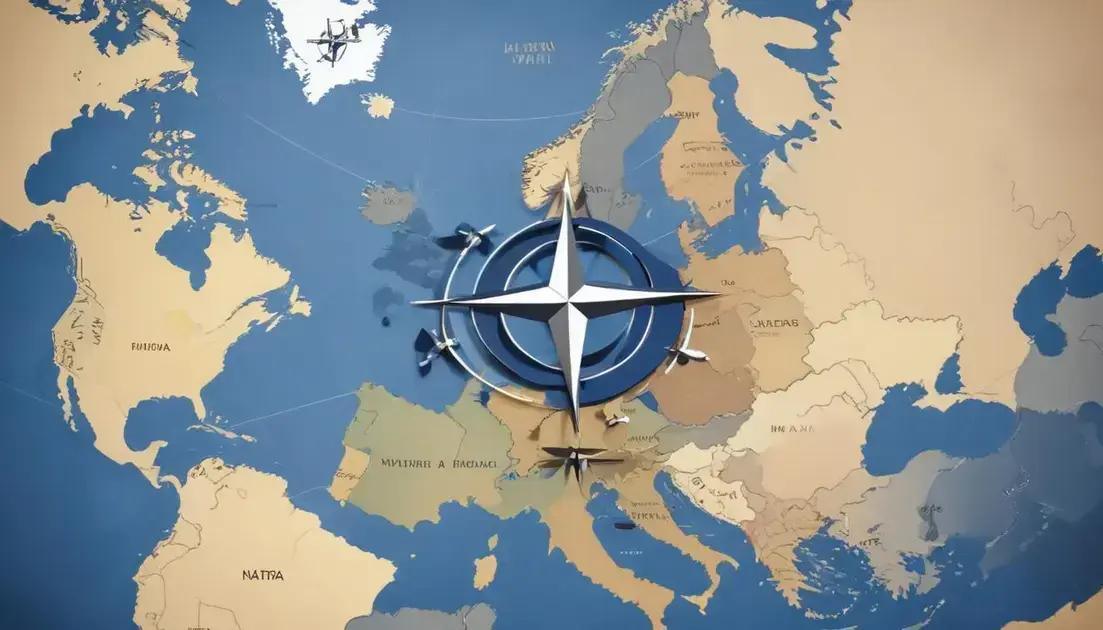
Eurozone Crisis: Debt, Austerity and Shaken Unity
The Eurozone Crisis significantly impacted countries like Greece, Spain, and Portugal, leading to economic collapse, austerity measures, and public unrest. Nations struggled with high unemployment and cuts to essential services, prompting widespread protests and calls for reform. As the future of the European Union unfolds, stronger financial regulations and unity among member states are crucial for recovery and stability. Addressing public concerns and enhancing cooperation can help Europe emerge stronger from these challenges.
Eurozone Crisis has shaken the foundation of the European Union, leaving countries like Greece struggling with debt, while Spain and Portugal are reeling from austerity measures. What lies ahead?
Introduction
The Eurozone Crisis has caused serious problems for many countries in Europe. Greece has faced huge debt issues, leading to struggles for its people. Meanwhile, Spain and Portugal have also dealt with similar financial challenges. These nations have had to implement strict austerity measures to reduce their debt and stabilize their economies.
People in these countries have reacted strongly. Protests and discussions have taken place as citizens express their frustration over cuts to public services and job losses. There is a growing division in the European Union about how to handle these crises and whether unity is possible.
As we explore the impact of the Eurozone Crisis, we must consider its effects on everyday lives. Families worry about job security, and young people face fewer opportunities. How these countries navigate these challenges will shape the future of the entire Eurozone.
Economic Collapse in Greece
The economic collapse in Greece shows how quickly things can change. Once, Greece had a booming economy. Its tourism and shipping industries thrived, and many enjoyed a high standard of living. But then came the crisis.
High debt turned into serious problems. Greece borrowed heavily to support its growth. When the financial crisis hit in 2008, those debts became unmanageable. The country faced bankruptcy and needed help.
In 2010, Greece received its first bailout from the European Union and the International Monetary Fund. This support came with tough conditions. Austerity measures meant cuts to public spending, pensions, and salaries.
For many Greeks, life changed drastically. People lost jobs, and businesses shut down. Protests erupted as citizens fought against further cuts. The crisis not only affected the economy but also led to a sense of despair.
Today, Greece is slowly recovering. Unemployment rates are still high, but tourism has made a comeback. The country is learning hard lessons about managing debt and ensuring economic stability.
Impact on Spain and Portugal
The impact on Spain and Portugal from the Eurozone Crisis has been significant. Both countries faced economic challenges similar to Greece. They struggled with high unemployment and severe austerity measures.
Spain saw a sharp rise in jobless rates. Many young people found it hard to get work. The housing market crashed, leaving families without homes. Protests became common as people demanded change.
Portugal also faced tough times. The government had to cut spending, which hurt public services. Schools and hospitals suffered from lack of funds. Citizens were frustrated by these cuts that affected their daily lives.
In response, both countries had to implement reforms. Spain focused on labor market changes to help its economy recover. Portugal, on the other hand, received a bailout and had to work hard to stabilize its finances.
Today, there’s a slow recovery. Tourism has improved in both countries. However, the scars of the crisis remain as people remember the struggles they endured.
Austerity Measures and Public Response
Austerity measures were introduced in many Eurozone countries to tackle rising debt. Greece, Spain, and Portugal all faced strict budget cuts. These cuts aimed to reduce spending and balance budgets. However, they also created many problems.
In Greece, austerity led to drastic changes. Public services were cut, and many people lost their jobs. Schools and hospitals struggled to provide basic services. The Greek people responded with anger, holding protests and demonstrations.
Spain experienced similar challenges. Cuts to social programs made life harder for everyday citizens. Young people especially felt the pinch. They took to the streets to demand change and jobs, showing their discontent with the government’s decisions.
Portugal also had its share of public backlash. Many citizens protested against the harsh cuts. They believed that austerity hurt the economy more than it helped. People wanted better solutions instead of cuts.
These austerity measures sparked a debate. Some argued they were necessary to fix financial problems. Others believed they only made things worse. The impact of these cuts is still felt today as these countries work toward recovery.
Future of the European Union
The future of the European Union is uncertain but important. The Eurozone Crisis has tested the strength of the EU. Countries like Greece, Spain, and Portugal have faced economic hardships. How they recover will affect the entire region.
Many believe the EU must change to survive. There are calls for stronger financial rules. Some suggest creating a more unified economic strategy. This could help prevent future crises and increase stability.
Another aspect is unity among member nations. The crisis revealed divisions within the EU. Countries need to work together, but national interests often clash. Finding common ground will be essential for moving forward.
Public opinion also plays a role. Citizens are questioning the benefits of EU membership. If economic struggles continue, support for the EU might weaken. Leaders must address these concerns to keep the union strong.
As the EU looks to the future, innovation and cooperation will be key. Harnessing new technologies and fostering partnerships can drive growth. The road ahead may be challenging, but with commitment, the EU can emerge stronger than before.
Conclusion
In conclusion, the Eurozone Crisis has reshaped the futures of many nations in Europe. Countries like Greece, Spain, and Portugal have faced tough challenges. Austerity measures brought stress to their people, while protests highlighted the need for change.
Looking ahead, the European Union must adapt to ensure stability. This includes clearer financial rules and deeper cooperation among member states. By addressing public concerns and uniting for common goals, the EU can build a stronger future.
The road won’t be easy, but with dedication, there’s hope for recovery and growth. Together, these nations can overcome their past struggles and create a brighter, more united Europe.


